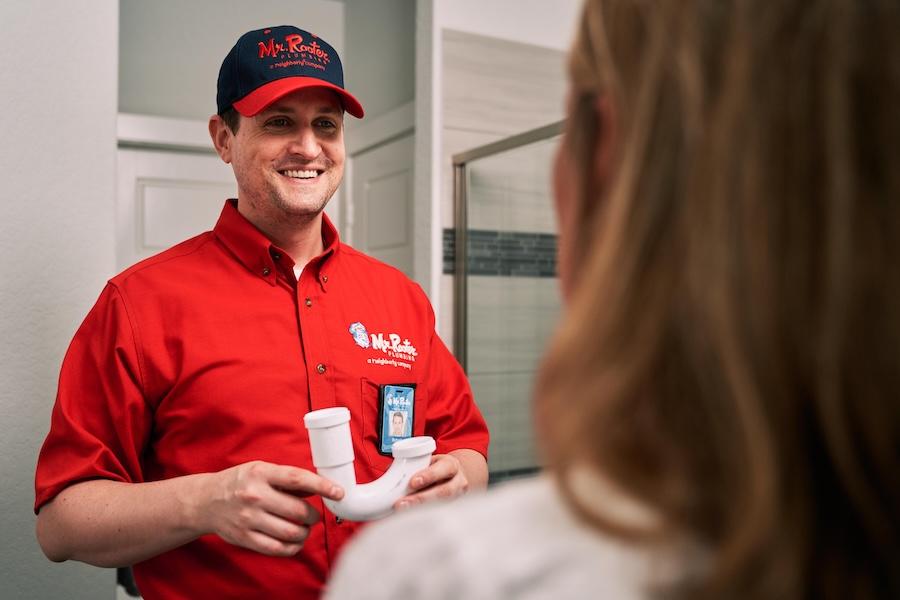Call This Monday to Get $50 OFF
Call us Now to Get $50 OFF.
Ratings based on 6379 reviews
Local Plumbers, Local Reviews
Call This Monday to Get $50 OFF
Call us Now to Get $50 OFF.
Ratings based on 6379 reviews
Local Plumbers, Local Reviews

Pipe bursts happen, and they usually catch us off guard. Whether the cause is a sudden freeze or a long-neglected plumbing issue, taking action quickly is very important. At Mr. Rooter Plumbing, we can provide the right plumbing service to get your system back under control right away. Read more to find out the steps you should take to get the situation handled and minimize damage.
The moment you discover a burst pipe, locate your home’s main water valve and shut it off immediately. This step stops the flood from getting worse. Typically, the main valve is found in the basement, near the water meter, or in a utility room. Once the water is off, don’t forget about electricity. If the water has seeped near electrical outlets or appliances, you’ll need to switch off the power to avoid any risk of electrocution. Here’s where to look for the main water valve:
Search for a reliable plumber or plumbing service in your area. You need professionals who can repair the burst pipe and inspect for additional damage. Mr. Rooter Plumbing has a reputation for taking care of these situations, and you’ll want an experienced hand for this kind of disaster. Don’t attempt a major pipe repair or repiping job on your own because the risk of making things worse is high. Here’s why you need a professional:
Burst pipes usually happen because of freezing conditions. If temperatures are still low, you’ll want to maintain a warm space to prevent further pipe issues. You can turn up the thermostat and open cabinet doors under sinks to circulate warm air around pipes. Check out these preventative steps to avoid future bursts:
With water damage, every second counts. Begin removing as much water as possible from the affected area. The goal is to dry things out quickly to prevent mold and mildew from taking hold. Open windows for ventilation or bring in fans to speed up the drying process.
If the damage is extensive, you may want to call a water damage restoration company. Drying things out yourself can work for minor leaks, but larger issues may require industrial equipment to fully mitigate moisture and prevent problems.
Once the chaos is somewhat under control, take inventory of the damage. You’ll need detailed photos and notes for your insurance company. This step is important if you plan to file a claim to cover the costs of repairs and replacements. Be thorough.
Do you need to tackle a plumbing disaster? Whether you need urgent pipe repair or a consultation on repiping your home to prevent future issues, Mr. Rooter Plumbing is here to help. Contact us to schedule an appointment.
As a society, the delivery of clean water through various systems is one of the…
Read MoreAre you worried that the constant trickle of water in your toilet is the cause…
Read MorePlumbing problems are the one incident every homeowner dreads due to their expensive repairs and…
Read MoreWater heaters are vital appliances that keep households and commercial establishments running efficiently. Whether it is showering, drinking,…
Read MoreWhen it comes to leaks, not all of them are visible to the naked eye. Sometimes, the pipes…
Read More